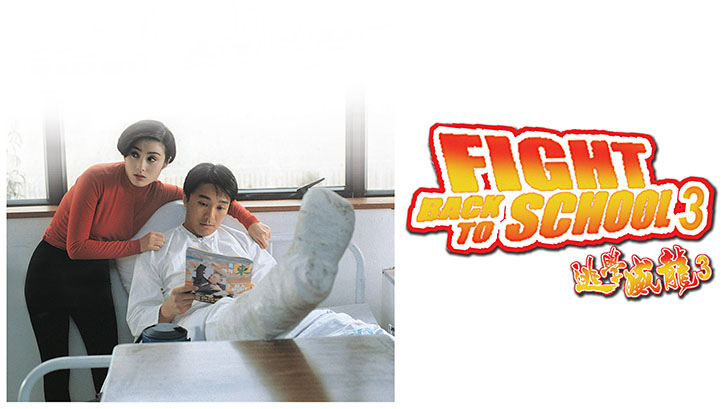Here are some games that students should play in Las Vegas:
1. GamrWorks Las Vegas
According to Andrew, who works at assignment help Australia, Las Vegas offers an advanced arcade that attracts many travelers, young as well as old. GameWorks Las Vegas, with a dozen sites around the country, so guests are aware that there will be no other gaming experience.
While other GameWorks sites offer cups, Las Vegas focuses on delivering fantastic food and drinks. More than 200 of the warmest games are held in various theme sections of the property at every site of GameWorks.
Visitors to GameWorks, together with the newest technology, are certain to have an amazing time with the help of two of the largest giants.
2. Aria Hotel Arcade
Situated on the second level Promenade, the Hotel Aria offers an Arcade with a number of traditional games, such as myself – Pac Man, Centipede and others. Situated on the 2nd floor Promenade area. This arcade is not surprising, yet it is a wonderful spot to murder for a couple of hours.
3. Fun Dungeon at Excalibur
Playing the games in the Excalibur hotel arcade, Fun Dungeon, is the only kid’s pastime that can beat a day at the pool. The Fun Dungeon is located on the lower floor and is open from 10 a.m. to 10 p.m. every day. Your children will not want to leave once they have discovered this location.
There are 200 games in Fun Dungeon, including 15 carnival midways, 10 kiddie land games, 60 arcade games, 10 sports games, and 106 redemption games! Of course, with all that action and excitement, your children are certain to become thirsty or hungry. It’s not an issue.
In the arcade, you’ll find Dairy Queen and Orange Julius. Fun Dungeon is also far less expensive and busy than the Adventuredome at the Circus-Circus hotel.
4. Midway Arcade at Circus Circus
Step up, guys, to the Circus-Circus Hotel and play the world-renowned Carnival Midway. Students of all ages will like to play the popular games of America that are never out of vogue. The Midway surrounds the stage of the circus and provides the entire family with a vast range of entertaining games.
Regardless of the game you are playing, it’s going to be a terrific win. Don’t forget the latest electronic arcade on the Midway as well. You have plenty to keep you engaged with 200 of the most popular matches. Choose the trendiest new releases or those you always liked.
5. Luxor Arcade
The Games of Gods Arcade, a highly technological entertainment hub featuring the greatest arcade games in Vegas, can be found in the Hotel Luxor. The arcade presents some of the most fascinating and newest goods on the market:
The programmable roller coaster MAXFLICHT VR2002. Go to a simulated ride on this two-passenger unit on the roller coaster you designed. Choose from a track collection and you will never forget about an experience!
In a race to seize the checked-flag, Indy 500 is a motion-based simulator that puts you in the driver’s seat against seven other opponents. Powerboat: an active powerboat game that allows the player to take part in four races, including New York, England, Japan and Russia.
6. Time Out Arcade at The Orleans
According to Michelle, who works at java homework help, the Time Out Arcade provides a good old time for students. It has the most up-to-date and engaging video games. Gain playing tickets and redeem them for several awards including games, cuddly animals and more.
The drawback, the games are not inexpensive, with Connect 4 Basketball Hoops at an average of $ 1.50 and up to $6. Higher arcade prices might be compensated if you buy a game card because they typically have a bonus.
For example, a $20 game card is provided with a $5 bonus; a $40 game card has a $12 bonus; the higher your card is, the larger the benefit. Why not save if you’re going to spend some time at Time Out Arcade? Seven days open per week.
7. MGM Grand Hotel Arcade
MGM Grand hotel’s arcade is a centre of 11,400sq.m. games and child trips, as well as the newest virtual reality video arcades and high-tech playgrounds. The arcade is available for everyone.
8. Level Up 21+ Arcade at MGM Grand
At the MGM Grand Hotel, the way Las Vegas looks at arcades is changing. Providing, a new age for interactive, competent entertaining games in combination with a bar/lounge and transitional games like pool and billiard. The tech-savvy, adult playground offers pay-to-play facilities in a social climate, between Hakkasan Nightclub and the MGM Grand Race & Sports Book, aimed not just to attract next generation players but also to attract players seeking innovation. To enter, it has to be 21 and above.
9. Start-o-fair Arcade at Stratosphere Hotel
In addition to the already-value packed family image, the Stratosphere Casino Hotel recently built a multi-faceted attraction of 17.000square feet. In the halfway point of the Strat-O-Fair is a world fair motif from 1963.
The middle is on the base of the 1,149-foot tower, the restaurant & lounge Top of the World and the observatory decks. The Sky Wheel, 45-foot in diameter of the Ferris wheel that gives guests a view of the Strip at the top of the ride from 80 feet above the pavement, is a major attraction.
Eli Bridge, the oldest Ferris wheel firm in the US, was rebuilt and rebuilt for the Strat-O-Fair about 1958.
10. Big Apple Rollercoster and Arcade
At the New York New York hotel, you can kill two birds with one stone: students can ride the Big Apple Rollercoaster and shoot at ArcadeCome. According to Bryan, who works at EduWorldUSA, the Big Apple Arcade is one of the biggest arcades on the Las Vegas Strip. It has 32,000 square feet of space dedicated to the latest video and arcade games as well as old favourites like Skee-Ball, Air Hockey, and NBA Fever.
The Arcade is located on the second level of the Greenwich Village district, above the casino, and is easily accessible and within walking distance to the casino, restaurants, and bars for adults. Credits and packages for Big Apple Arcade, the costs of arcade games are quite low, especially given the Strip location:
- 10 Credits – $1
- 50 Credits – $5
- 100 Credits – $10
- 200 Credits – $20
- 500 Credits – $50
- 1000 Credits – $100
The Big Apple Arcade is available from 10 a.m. to 11:30 p.m. seven days a week. It’s a slightly longer weekend hour.


















 What is a VPN Anyway?
What is a VPN Anyway? What Should You be Looking for in a VPN?
What Should You be Looking for in a VPN?


Be the 1st to Comment